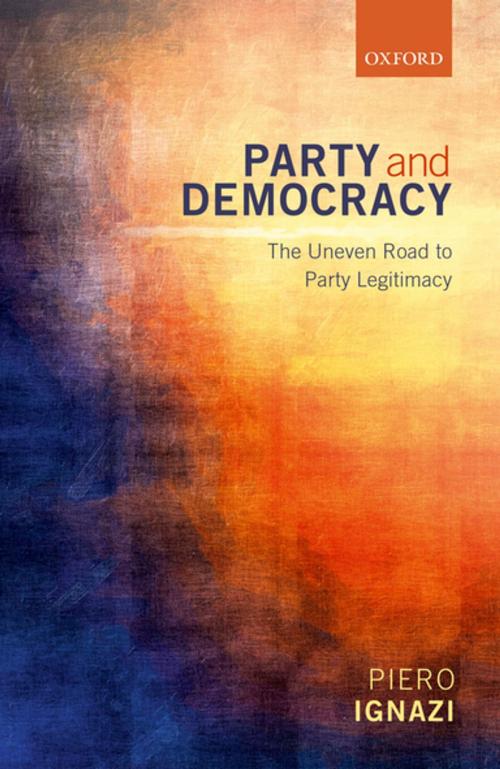Party and Democracy
The Uneven Road to Party Legitimacy
Nonfiction, Social & Cultural Studies, Political Science, International, Foreign Legal Systems, Government, Democracy| Author: | Piero Ignazi | ISBN: | 9780192537607 |
| Publisher: | OUP Oxford | Publication: | January 26, 2018 |
| Imprint: | OUP Oxford | Language: | English |
| Author: | Piero Ignazi |
| ISBN: | 9780192537607 |
| Publisher: | OUP Oxford |
| Publication: | January 26, 2018 |
| Imprint: | OUP Oxford |
| Language: | English |
Party and Democracy questions why political parties today are held in such low estimation in advanced democracies. The first part of the volume reviews theoretical motivations behind the growing disdain for the political party. In surveying the parties' lengthy attempt to gain legitimacy, particular attention is devoted to the cultural and political conditions which led to their emergence on the ground' and then to their political and theoretical acceptance as the sole master in the chain of delegation. The second part traces the evolution of the party's organization and public confidence against the backdrop of the transition from industrial to post-industrial societies. The book suggests that, in the post-war period, parties shifted from a golden age of organizational development and positive reception by public opinion towards a more difficult relationship with society as it moved into post industrialism. Parties were unable to master societal change and thus moved towards the state to recover resources they were no longer able to extract from their constituencies. Parties have become richer and more powerful thanks to their interpenetration into the state, but they have paid' for their pervasive presence in society and the state with a declining legitimacy. Even if some changes have been introduced recently in party organizations to counteract their decline, they seem to have become ineffective; even worse, they have dampened democratic standing inside and outside parties, favouring plebiscitary tendencies. The party today is caught in a dramatic contradiction. It has become a sort of Leviathan with clay feet: very powerful thanks to the resources it gets from the state and to its control of the societal and state spheres, but very weak in terms of legitimacy and confidence in the eyes of the mass public. However, it is argued that there is still no alternative to the party. Democracy is still inextricably linked to the party system.
Party and Democracy questions why political parties today are held in such low estimation in advanced democracies. The first part of the volume reviews theoretical motivations behind the growing disdain for the political party. In surveying the parties' lengthy attempt to gain legitimacy, particular attention is devoted to the cultural and political conditions which led to their emergence on the ground' and then to their political and theoretical acceptance as the sole master in the chain of delegation. The second part traces the evolution of the party's organization and public confidence against the backdrop of the transition from industrial to post-industrial societies. The book suggests that, in the post-war period, parties shifted from a golden age of organizational development and positive reception by public opinion towards a more difficult relationship with society as it moved into post industrialism. Parties were unable to master societal change and thus moved towards the state to recover resources they were no longer able to extract from their constituencies. Parties have become richer and more powerful thanks to their interpenetration into the state, but they have paid' for their pervasive presence in society and the state with a declining legitimacy. Even if some changes have been introduced recently in party organizations to counteract their decline, they seem to have become ineffective; even worse, they have dampened democratic standing inside and outside parties, favouring plebiscitary tendencies. The party today is caught in a dramatic contradiction. It has become a sort of Leviathan with clay feet: very powerful thanks to the resources it gets from the state and to its control of the societal and state spheres, but very weak in terms of legitimacy and confidence in the eyes of the mass public. However, it is argued that there is still no alternative to the party. Democracy is still inextricably linked to the party system.















